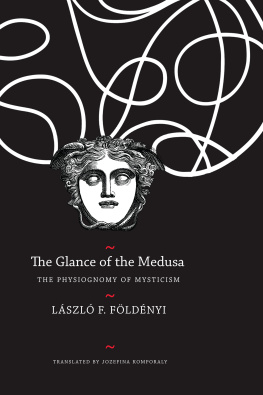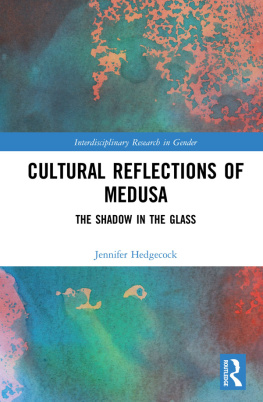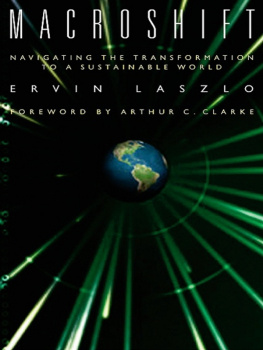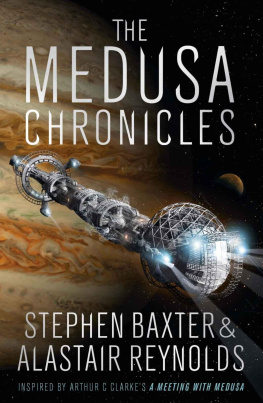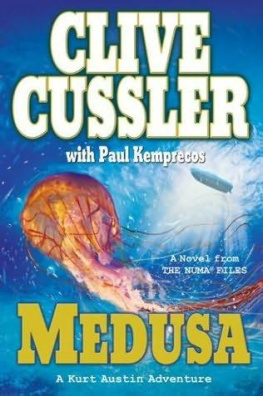László F. Földényi - The Glance of the Medusa
Here you can read online László F. Földényi - The Glance of the Medusa full text of the book (entire story) in english for free. Download pdf and epub, get meaning, cover and reviews about this ebook. publisher: Seagull Books, genre: Religion. Description of the work, (preface) as well as reviews are available. Best literature library LitArk.com created for fans of good reading and offers a wide selection of genres:
Romance novel
Science fiction
Adventure
Detective
Science
History
Home and family
Prose
Art
Politics
Computer
Non-fiction
Religion
Business
Children
Humor
Choose a favorite category and find really read worthwhile books. Enjoy immersion in the world of imagination, feel the emotions of the characters or learn something new for yourself, make an fascinating discovery.
- Book:The Glance of the Medusa
- Author:
- Publisher:Seagull Books
- Genre:
- Rating:3 / 5
- Favourites:Add to favourites
- Your mark:
- 60
- 1
- 2
- 3
- 4
- 5
The Glance of the Medusa: summary, description and annotation
We offer to read an annotation, description, summary or preface (depends on what the author of the book "The Glance of the Medusa" wrote himself). If you haven't found the necessary information about the book — write in the comments, we will try to find it.
The Glance of the Medusa — read online for free the complete book (whole text) full work
Below is the text of the book, divided by pages. System saving the place of the last page read, allows you to conveniently read the book "The Glance of the Medusa" online for free, without having to search again every time where you left off. Put a bookmark, and you can go to the page where you finished reading at any time.
Font size:
Interval:
Bookmark:
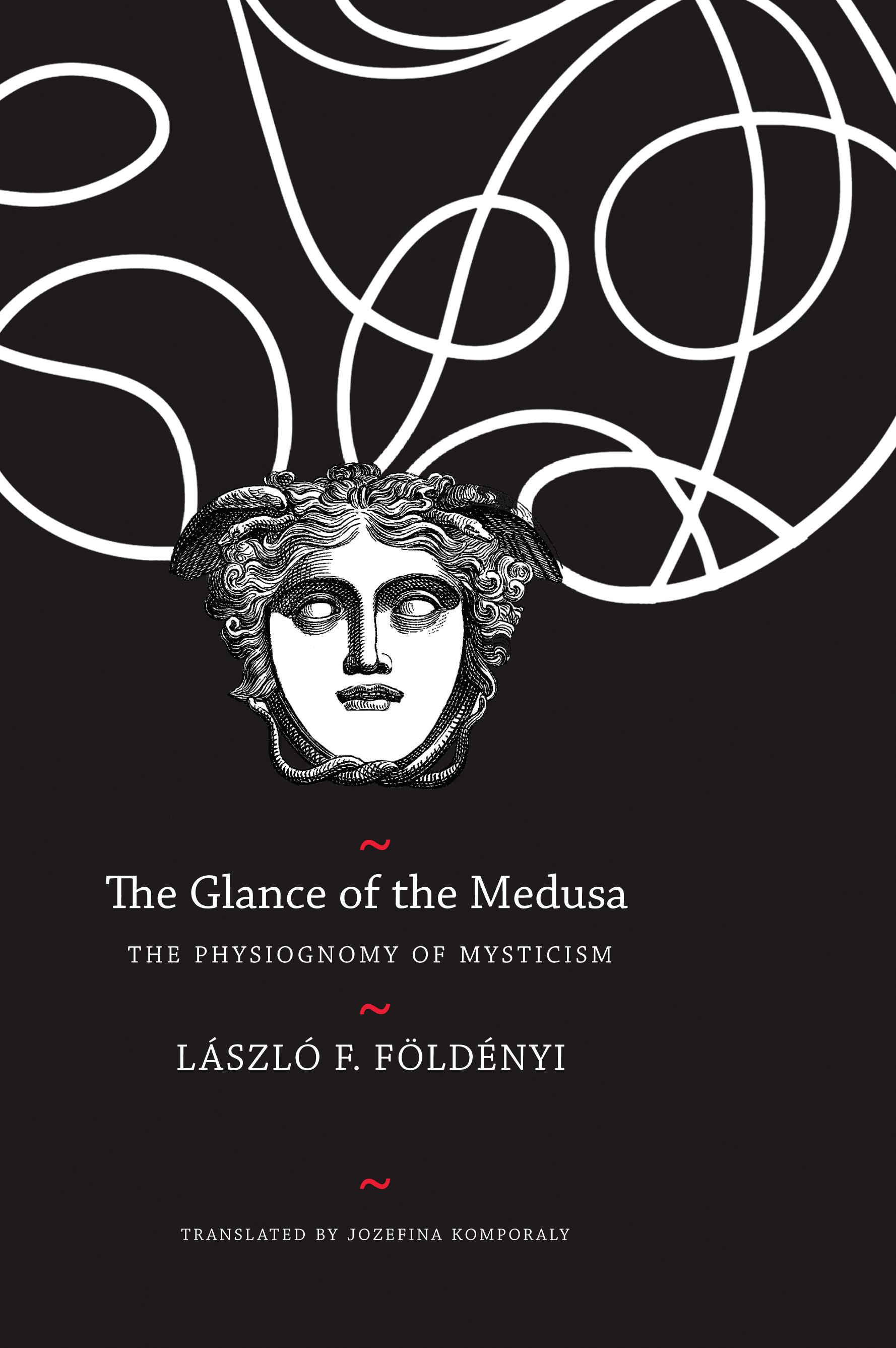
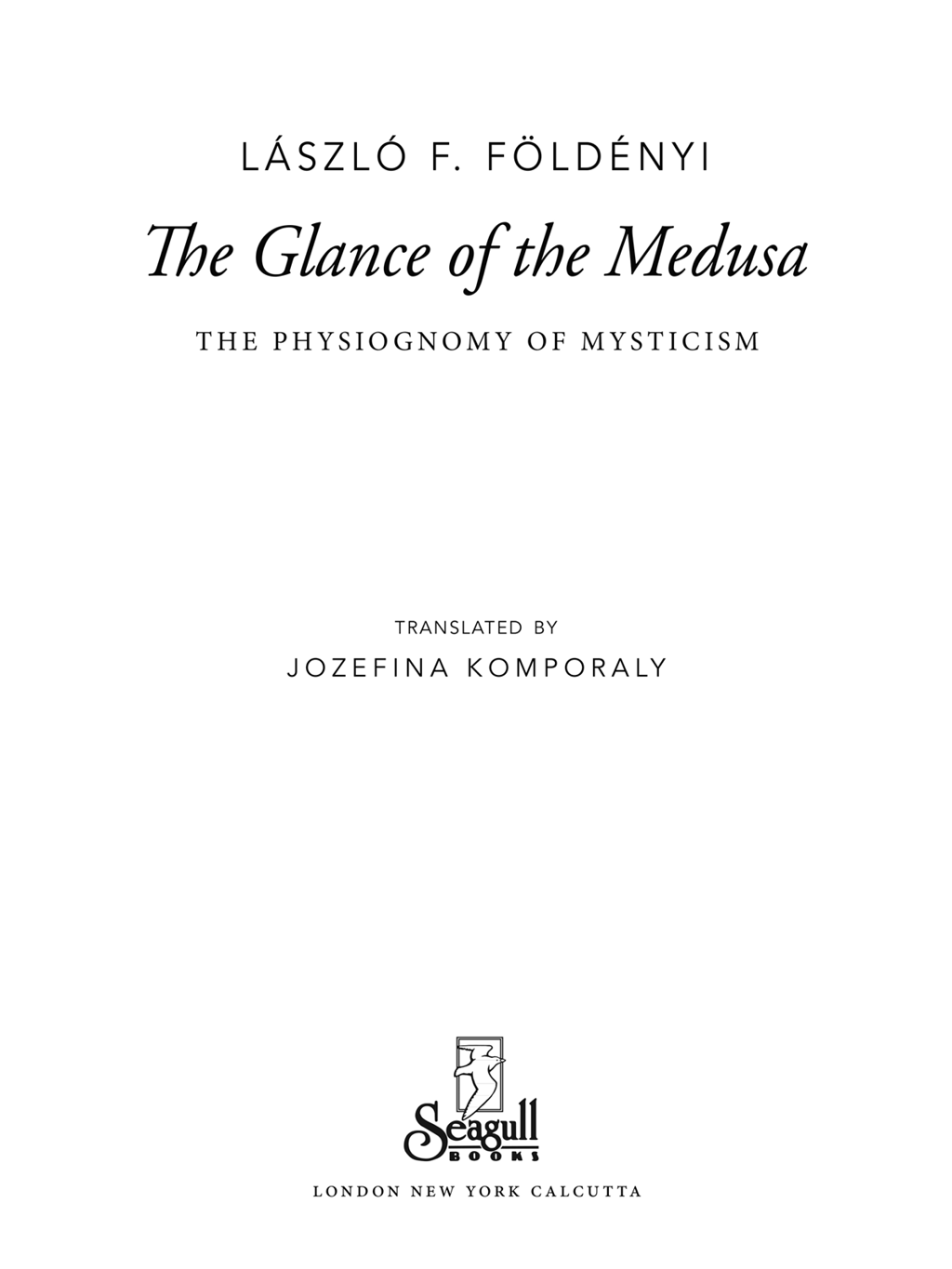
Fldnyis Copyright page
The Hungarian List
Series Editor
OTTILIE MULZET
Seagull Books, 2020
Lszl F. Fldnyi, 2020
English translation Jozefina Komporaly, 2020
ISBN 978 0 8574 2 626 0
British Library Cataloguing-in-Publication Data
A catalogue record for this book is available from the British Library
Mottos
... [U]ltimately one experiences only oneself. The time has passed in which accidents could still befall me, and what could fall to me now that is not already my own? It merely returns, it finally comes home to memy own self and everything in it that has long been abroad and scattered among all things and accident [... ] Peak and abyssthey are now merged as one! [... ] You go your own way of greatness; here no one shall sneak along after you! Your foot itself erased the path behind you, and above it stands written: impossibility. (Friedrich Nietzsche)
The fire of the gods drives us to set forth by day
And by night. So come, let us look at what is apparent.
(Friedrich Hlderlin)
The body is capable of a degree of tension, fragmentation, density, and impenetrability that surpasses all philosophy, dialectics, music, physics, poetry, and magic, Antonin Artaud contended shortly before his death in his lecture Theatre and Science. Seeing his audiences seeming incomprehension, he added: I would have had to shit blood through my navel in order to make myself understood and to arrive at what I wanted.
God isnt humanitys limit-point, though humanitys limit-point is divine. Or put it this wayhumanity is divine when experiencing limits. (Georges Bataille)
That there was a Deluge once, seems not to mee so great a miracle, as that there is not one alwayes. (Sir Thomas Browne)
[D]eath is not the pathos of the ultimate human possibility, the possibility of impossibility, but the ceaseless repetition of what cannot be grasped, before which the I loses its ipseity. The impossibility of possibility [... ] In death [... ] the regular order is reversed, since, in it, power leads to what is unassumable. Thus the distance between life and death is infinite [... ] Death is not the end, it is the never-ending ending. (Emmanuel Levinas)
Time present and time past
Are both perhaps present in time future
And time future contained in time past.
(T. S. Eliot)
Introduction
God creates out of nothing, man out of ruins. We must break ourselves to pieces before we know what we are, what we can be and do! ( Don Juan and Faust 1.2) Romantic playwright Christian Dietrich Grabbe wrote these lines for one of the protagonists of his 1829 tragedy. As is his custom, Faust aims high. He wishes to accomplish what allegedly is Gods due, on his own. For this, however, he needs to defy God himself. He attempts creation, too. His circumstances and possibilities are radically different from those of a supposed God though. God created Something out of Nothing; Faust, however, can only create Something new from something already existing. In order for this Something to be as final and substantial as Gods creation, it needs to actually rise above and supersede the Something created by God. But since God is supreme, meaning that he is above all, this supersedure can only bear fruit if done in the opposite direction. God needs to be eclipsed in order for Faust to supersede him. As Heinrich von Kleist outlined in his study on marionette theatre (1810), written just prior to Grabbes play: [W]e would have to eat once more of the tree of knowledge in order to fall back into the state of innocence [... ] Yes, [... ] that is the final chapter in the history of the world (2013: 47).
To eclipse God means to ignore his work, that is, creation, and in parallel, to also ignore what preceded creation, that is, Nothing-ness. While on a path to self-destruction, Grabbes hero also attempts a spiritual adventure. God created a world out of Nothing-ness: essentially claiming that all there is (the World, Something, the Existent/Be-ing) has been preceded by whatever cannot be called the World, Something or the Existent/Be-ing, and for this reason it is, by definition, also greater than these. Could this be anything other than Nothingness, orin Heideggers termsBeing? The creative act attributed to God draws attention to the most fundamental tradition of European thought, metaphysical thought, the theological character of which had been pinpointed by Heidegger:
Ever since being got interpreted as , thinking about the being of beings has been metaphysical, and metaphysics has been theological. In this case theology means the interpretation of the cause of beings as God and the transferring of being onto this cause, which contains being in itself and dispenses being from out of itself, because it is the being-est of beings (1998b: 181).
Grabbes Faust aims for no less at the beginning of the nineteenth century than to bid farewell to this metaphysical tradition that goes back over two thousand years. At the same time, he also wants to bid farewell to an idea that has stubbornly entrenched itself in European thought: namely, that Nothingness, because it precedes everything, is richer than the Something created thereof. Faust does not believe in Nothingness, but he does believe in creation. And with this, he initiates a new tradition, which has consolidated into an increasingly strong influence ever since the Romantic Age, and, by the beginning of the third millennium, has gained a credibility in political thinking akin to the one enjoyed by the metaphysical disposition two thousand years ago. This new tradition aims to bridge the abyss between Being and Be-ing, and to do away with the difference between the two. Fausts plan is, to use a modern term, the deconstruction of simple, traditional metaphysical thinking. To create from rubble or to turn ourselves into rubblein order to find out who and what we areis the rejection of the idea of Nothingness as a precedent to everything, a renunciation of the belief that sooner or later one can reach a finalor initialhandle, the certitude of the Whole and the Complete, which shines like a sun illuminating everything that follows (or precedes) it.
Traditional metaphysics is underpinned by a belief in a supposedly final and positive meaning, which meaning, by virtue of its very nature, also differentiates itself from everything that it invests with meaning. This traditional understanding of meaning, the abyss between Being and Be-ing, entices us with the prospect of a new world that, although available to all, can only be accessed if one renounces everything there is, and abandons what appears to be without meaning. But why does this appear enticing? Because all that there is, in other words, Be-ing, creates the impression of a compulsion that prevents people from achieving precisely what Grabbes Faust is also craving: to find out who they are and what they are capable of.
In lieu of an earthly, and hence fractured, Self-image, metaphysical thinking is fascinated by a solid and definitive, hence divine, Self-image, which allegedly awaits us somewhere, however hard it may be to find. Grabbes Faust challenges the existence of such an essential Self-image. Available for everyone to identify with, it has constituted one of the pillars of European civilization for centuries. From the Romantic Age onwards, however, the inner cracks in metaphysical thinking have become increasingly visible. These cracks first appeared with the shaking of the belief in the traditional God-image. In parallel with the latter, the so-called divine Self-image had also become subject to interrogation, to the extent that in the mid-twentieth century, Czeslaw Miosz could posit the following: The individual, proudly pointing to himself as I, proved just as much an illusion, a bundle of reflexes covered by a uniform epidermis (1985: 240).
Font size:
Interval:
Bookmark:
Similar books «The Glance of the Medusa»
Look at similar books to The Glance of the Medusa. We have selected literature similar in name and meaning in the hope of providing readers with more options to find new, interesting, not yet read works.
Discussion, reviews of the book The Glance of the Medusa and just readers' own opinions. Leave your comments, write what you think about the work, its meaning or the main characters. Specify what exactly you liked and what you didn't like, and why you think so.

